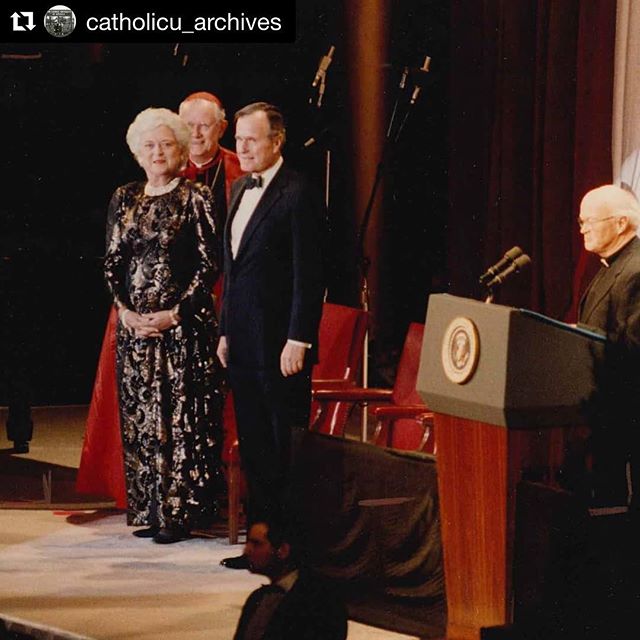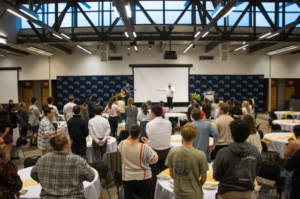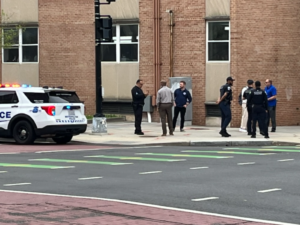In Memory of George Herbert Walker Bush


Dr. Phillip G. Henderson, Department of Politics
George Herbert Walker Bush was a statesman in the truest sense of the word. He was imbued with high ideals of public service, especially by his mother, but also by the example of his father’s service as a United States Senator from Connecticut during the Eisenhower and Kennedy administrations. Bush was a man of deep faith, and served as a vestryman in the Episcopal Church. One of his favorite hymns, “Fairest Lord Jesus,” which was played on Monday as his flag-draped casket was taken into the Rotunda of the U.S. Capitol, has a moving line that seems appropriate in discussing Bush’s faith: “Thee will I cherish, Thee will I honor, Thou my soul’s glory, joy, and crown.”
Bush’s faith, his lovely marriage to Barbara, his legacy as a loving father, and his sense of noblesse oblige, are reflections of his exemplary character. His life fulfilled the scriptural command in Luke 12:48 “For onto whomsoever much is given, of him much shall be required.”
His lifetime was full of so many accomplishments that only a few can be mentioned in limited space. At 18 years of age, he was the youngest pilot in the Navy at the time of his commissioning. He flew 58 combat missions in WWII and was shot down in enemy territory after attacking the Japanese stronghold of Chichi Jima a few hundred miles south of Tokyo. Nine pilots survived their mission by parachuting after their planes were shot down by the Japanese. Bush was the only pilot of the nine not to be captured. The other eight airmen were tortured and executed. Bush knew he was a lucky man, when, after four hours in a life raft, a U.S. submarine surfaced to rescue him before Japanese patrol boats were able to capture him.
Bush attacked his post-war studies at Yale with the same drive and determination that had earned him the Distinguished Flying Cross for his heroism in the war. He graduated Phi Beta Kappa in economics in just two and a half years, serving as Captain of the Yale baseball team that played in the College World Series two years in a row. Bush never lost his love of baseball and Nolan Ryan and Ted Williams were among his many close friends. Bush and Ted Williams took combat pilot training together at the same V-5 flight training facility. When Williams died in 2002, Bush said: “On and off the field, he believed in service to the country and indeed served with honor and distinction.” Those words certainly echo this week.
Few other presidents in our history had a resume as distinguished as George Bush’s–John Quincy Adams comes to mind. From the age of 10, when young Quincy accompanied his father to Paris, under peril of capture by the British, Adams was literally groomed for the highest office in the land. As an ambassador, U.S. Senator, Secretary of State, and President, John Quincy Adams had a remarkable career. Bush’s service as a Congressman from Houston, Envoy to China, Ambassador to the United Nations, Director of the CIA, and Vice President and head of Crisis Management under Ronald Reagan, gave him the breadth and experience to handle the end of the Cold War and the Gulf War of 1991 with amazing facility and success.
President Bush’s ability to cross party lines and to build coalitions in the U.S. Congress, and to put together a 28-nation coalition to end Iraq’s invasion of Kuwait in 1991, are among the accomplishments that Americans greatly admired. What Americans seem to remember most about him, though, is not the breadth of his experience and leadership, but his warmth and dignity as a person. He was a man of considerable grace and goodwill, and for that the nation is indebted to him for his unflinching devotion and service.








